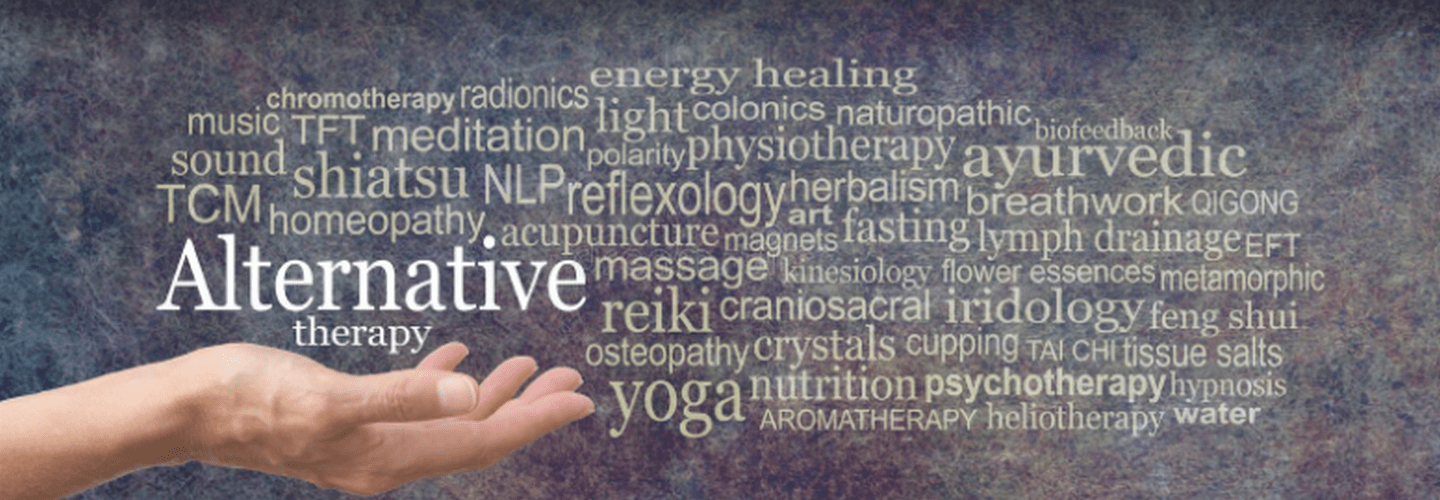
STRESS IS A KILLER
Stress isn’t just uncomfortable, stress is a killer; it’s harmful, leading to conditions like heart disease and weakening your immune system. You can combat this through hypnosis and self-hypnosis, practices that reduce cortisol levels and enhance relaxation.
These techniques aren’t about losing control but about gaining mastery over your stress response. By engaging in regular self-hypnosis, you can improve your emotional resilience and overall well-being. Start with simple practices like deep breathing and positive affirmations to tap into a calmer state of mind. There’s much you can achieve with these tools, and further exploration can lead to profound changes in managing stress.
Understanding Stress and Health
You’re likely aware that chronic stress can wear down your body, leading to physical ailments like heart disease and obesity.
It also takes a significant emotional toll, potentially weakening your immune system and leaving you more vulnerable to illness.
Understanding how stress impacts both your body and mind is the first step in taking control and improving your health through techniques like hypnosis.
Stress’s Physical Impact
Understanding the physical impact of stress is essential, as it can greatly harm your health if not managed properly. When you’re stressed, your body releases stress hormones like cortisol, which can wreak havoc on your physical health.
Here are three significant ways stress can affect you:
- Digestive Impact: Stress doesn’t just get under your skin; it gets into your gut. It can exacerbate or lead to digestive problems like irritable bowel syndrome (IBS) and stomach ulcers. Managing stress is important to keeping your digestive system running smoothly.
- Chronic Conditions: Chronic stress can accelerate or worsen chronic conditions such as heart disease, migraines, and skin issues like eczema. By controlling stress, you’re not just calming your mind; you’re healing your body.
- Cognitive Function: Excessive stress hormones can impair your cognitive function, affecting your memory and decision-making skills. This is why it’s crucial to adopt stress relief techniques that protect your mental faculties.
Don’t underestimate the power of stress. It’s not just a feeling; it’s a physical force that can change the course of your health. Learning to manage stress through methods like hypnosis and self-hypnosis can be a game-changer for your overall well-being.
Emotional Toll of Stress
Chronic stress doesn’t just wear down your body; it also takes a heavy toll on your emotional health, increasing your risk of conditions like depression and anxiety. When you’re constantly under pressure, managing your emotions becomes increasingly challenging. This lack of emotional regulation can spiral into more severe mental health issues if not addressed.
Developing stress resilience is vital for maintaining your well-being. It involves understanding the signs of emotional overload and implementing coping strategies that work for you. Techniques like hypnosis and self-hypnosis can be particularly effective. These practices help calm your mind, giving you the clarity to see beyond your immediate worries and enhance your overall well-being.
Stress and Immune Function
When you’re under constant stress, it can weaken your immune system, making you more vulnerable to illnesses. This breakdown in stress immunity isn’t just about feeling under the weather; it’s a critical issue that impacts your body’s ability to fight off infections effectively.
Here’s how stress affects your immune function:
- Immune Regulation Disruption: Chronic stress leads to elevated cortisol levels, which in turn can suppress your immune response. This disruption can make it harder for your body to defend itself against pathogens.
- Increased Inflammation: Long-term stress can trigger and sustain inflammation, which compromises your immune function and can lead to further health complications.
- Reduced Immune Support: Stress impairs the body’s natural immune support mechanisms, making you more susceptible to diseases.
It’s essential for your health to manage this stress response effectively. Techniques like hypnosis and self-hypnosis can be powerful tools for stress management, helping to regulate your body’s reactions and enhance your overall well-being. By taking control of your stress, you’re not just improving your mood—you’re actively bolstering your immune system. Prioritize your health by incorporating these practices into your routine.
Basics of Hypnosis

You’re on the brink of discovering the secrets of managing stress through the basics of hypnosis.
First, you’ll delve into the fundamental principles that make hypnosis an effective tool for relaxation and stress reduction.
Then, we’ll guide you through the techniques of self-hypnosis, empowering you to harness these benefits anytime you need.
Understanding Hypnosis Fundamentals
Understanding how hypnosis can combat stress hinges on grasping its fundamental principles, which revolve around a state of focused attention and heightened suggestibility. Hypnosis isn’t about losing control or falling into an involuntary sleep. Instead, it involves entering a voluntary, trance-like state through hypnotic induction, where your mind is both relaxed and highly concentrated. This state allows you to be more open to positive suggestions, making it a potent tool for stress management.
Here are three key aspects to understand:
- Hypnosis Misconceptions: It’s a common myth that hypnosis can make you perform actions against your will. In reality, you remain in control and aware.
- Trance Depth: The depth of trance can vary, and deeper trances aren’t necessarily more effective. It’s more about how receptive you’re to the process.
- Hypnosis Applications: Beyond stress relief, hypnosis offers therapeutic benefits for issues like anxiety, phobias, and chronic pain.
Techniques of Self-Hypnosis

Now that you know the basics of hypnosis, let’s explore how you can apply self-hypnosis techniques to effectively manage stress. First, find a quiet, comfortable place where you won’t be disturbed. You can sit or lie down, whatever feels best for you. Close your eyes and take deep, slow breaths. This initiates hypnotic relaxation, easing your body into a state of calm.
Focus on gradually relaxing each muscle group, starting from your toes and moving up to your head. This progressive muscle relaxation helps deepen your hypnotic state, enhancing the mind-body connection important for effective self-hypnosis. Visualize a peaceful scene—a quiet beach or a serene forest. This mental imagery is a self-care practice that supports stress relief by diverting your mind from daily stressors to soothing thoughts.
As you’re immersed in this tranquil visualization, gently introduce positive affirmations tailored to your stress management needs. Phrases like ‘I am calm’ or ‘I control my stress’ can reinforce your ability to manage stressful situations. Regular practice of these self-hypnosis techniques amplifies the self-hypnosis benefits, helping you maintain a relaxed state and manage stress more effectively. Remember, consistency is key in building and strengthening these skills.
Benefits of Hypnotic Practice
Hypnotic practice offers a powerful way to enhance your mental clarity and emotional stability by engaging deeply with your subconscious mind. This approach isn’t just about relaxation—it’s a proactive step towards strengthening your mind-body connection and fostering subconscious healing. When you tap into hypnosis, you’re setting the stage for profound changes in how you handle stress and life’s challenges.
Here’s what you can specifically gain from regular hypnotic practice:
- Mental Clarity: By clearing the clutter of daily stressors, hypnosis helps you focus and think more clearly, enhancing decision-making and problem-solving abilities.
- Emotional Balance: You’ll find it easier to regulate your emotions, resulting in more stable responses to stressful situations and improved overall mood.
- Stress Relief: Hypnosis provides a deep state of relaxation, notably reducing stress levels and helping prevent the health issues associated with chronic stress.
Self-Hypnosis Techniques

To effectively manage your stress, it’s important you master basic self-hypnosis techniques.
By learning methods for deep relaxation such as progressive muscle relaxation and guided visualization, you’ll enhance your ability to calm your mind and body.
Implementing a daily practice of self-hypnosis can greatly bolster your emotional resilience and overall well-being.
Mastering Basic Self-Hypnosis
 Have you ever considered how mastering basic self-hypnosis techniques can transform your approach to stress management? By learning to harness the mind-body connection, you not only pave the way for stress relief but also set the stage for significant personal growth.
Have you ever considered how mastering basic self-hypnosis techniques can transform your approach to stress management? By learning to harness the mind-body connection, you not only pave the way for stress relief but also set the stage for significant personal growth.
Here are three key steps to get you started:
- Find a Comfortable Position: Begin by ensuring you’re in a relaxed posture. Whether it’s sitting or lying down, comfort is essential to focus and effectively enter a state of self-hypnosis.
- Minimize Distractions: Close your eyes to block out external stimuli. This helps deepen your focus and enhances your ability to concentrate on the self-hypnosis process.
- Engage in Deep Breathing: Start with slow, deep breaths to relax your body and mind. This prepares you for deeper self-hypnosis and facilitates a greater state of calm.
Self-hypnosis isn’t just about immediate stress relief; it’s a stepping stone to mastering advanced techniques for self-improvement. As you practice, you’ll notice a strengthening in the mind-body connection, essential for your journey of personal growth. Embrace these practices regularly, and watch how they transform your response to stress and enhance your overall well-being.
Techniques for Deep Relaxation
You’ll find that employing deep relaxation techniques in self-hypnosis can profoundly impact your ability to manage stress effectively. As you begin, focus on positive thoughts and memories, which serve as the foundation for relaxation visualization. This method isn’t just about seeing a peaceful scene in your mind’s eye; it’s about fully immersing yourself in the experience, fostering a strong mind-body connection essential for stress relief.
To deepen the hypnotic trance, imagine yourself descending a staircase with 10 steps, where each step brings you into a more profound state of relaxation. With each step, your breathing slows, and your muscles release their tension, enhancing your emotional well-being.
Gradual muscle relaxation and controlled deep breathing are key techniques. Start at your toes and work upwards, relaxing each muscle group thoroughly as you focus on your breath. This practice not only normalizes your reactions to bodily sensations but also reduces fears and builds new, healthier responses to stress triggers.
Implementing Daily Hypnosis Practice
 Setting aside time each day for self-hypnosis is essential for effectively managing your stress and enhancing your overall well-being. By integrating self-hypnosis into your daily routine, you’re committing to a stress-free lifestyle that fosters a strong mind-body connection and promotes relaxation techniques as part of your regular self-care strategies.
Setting aside time each day for self-hypnosis is essential for effectively managing your stress and enhancing your overall well-being. By integrating self-hypnosis into your daily routine, you’re committing to a stress-free lifestyle that fosters a strong mind-body connection and promotes relaxation techniques as part of your regular self-care strategies.
Here are three self-hypnosis techniques to incorporate into your daily life:
- Progressive Muscle Relaxation: Begin by tensing each muscle group in your body for a few seconds and then relax them. Progress from your toes to your head. This method reduces physical tension and aligns with daily mindfulness.
- Guided Imagery: Visualize a peaceful scene, perhaps a quiet beach or a serene forest. Use all your senses to enhance the experience. This visual journey can serve as a powerful daily mindfulness practice, helping to anchor your mind-body connection.
- Deep Breathing Exercises: Focus on slow, deep breaths to maintain a rhythm. Inhale deeply through your nose, hold for a moment, and exhale slowly through your mouth. This technique is a cornerstone of relaxation and stress-free routines.
Incorporating these techniques into your daily self-hypnosis practice helps solidify your commitment to managing stress and enhancing your health. Stick with it, and you’ll feel the changes!
Benefits of Hypnosis

You’ll find that hypnosis offers remarkable benefits in managing your stress.
It helps you achieve deep relaxation, modulates your responses to anxiety, and reinforces positive behaviors effectively.
These tools empower you to handle stress with more resilience and control, enhancing your overall well-being.
Enhancing Deep Relaxation
By utilizing hypnosis, you can tap into profound levels of relaxation that enhance both mental and physical calmness. This state not only soothes your day-to-day stress but also fortifies you against future pressures. It’s a tool that reshapes how you respond to stress, grounding you in a peaceful state that few other methods can achieve.
When you engage in hypnosis, you’re introduced to techniques that elevate your relaxation to new heights:
- Relaxation Visualization: You’re guided to imagine serene and comforting scenes, which help transport your mind to a tranquil place.
- Serene Breathing: This involves deep, rhythmic breathing that promotes a calm imagery, synchronizing your body and mind into harmony.
- Peaceful State: The ultimate goal is to stabilize your emotional landscape, ensuring that your mind remains a tranquil oasis amidst the chaos of everyday life.
These tools are more than mere quick fixes; they’re part of a holistic approach to mental wellness. You’ll find that with consistent practice, the boundaries of your stress response shift. You’re not just coping; you’re thriving, turning what once overwhelmed you into something you can manage with grace and ease.
Modulating Anxiety Responses
 Frequently, hypnosis proves effective in calming your anxiety and stress responses, enhancing your ability to manage emotional turmoil with greater ease. This powerful tool aids in anxiety modulation by teaching you relaxation techniques that go beyond typical stress relief methods. You’ll find that with regular practice, you’re not just reacting to stressful situations, but actively managing them with a newfound emotional control.
Frequently, hypnosis proves effective in calming your anxiety and stress responses, enhancing your ability to manage emotional turmoil with greater ease. This powerful tool aids in anxiety modulation by teaching you relaxation techniques that go beyond typical stress relief methods. You’ll find that with regular practice, you’re not just reacting to stressful situations, but actively managing them with a newfound emotional control.
Imagine being able to prevent a panic attack before it fully manifests. Hypnosis trains your mind to recognize the onset of anxiety symptoms early and to deploy stress management strategies effectively. This preemptive approach guarantees you maintain calm and control, drastically reducing the frequency and intensity of panic episodes.
Each session of hypnosis builds on the last, reinforcing your ability to handle stress and modulate your anxiety effectively. The goal isn’t just to cope, but to thrive, by establishing a foundation of long-term emotional stability. You’ll learn to interpret and respond to your body’s signals in healthier ways, preventing stress from dominating your life. Embrace hypnosis as an essential part of your journey towards a calmer, more controlled existence.
Reinforcing Positive Behaviors
Hypnosis consistently reinforces positive behaviors by encouraging you to adopt new, healthier responses to stress. This transformative approach to behavior modification provides you with tools to enhance your emotional control and manage life’s pressures more effectively. Let’s explore how this can greatly benefit you:
- Positive Reinforcement: Hypnosis focuses on enhancing your inner strengths. By utilizing positive reinforcement, you’re more likely to repeat beneficial behaviors, gradually establishing a healthier lifestyle free from overwhelming stress.
- Stress Reduction: Regular engagement with hypnosis and self-hypnosis techniques leads to profound stress reduction. These methods help you develop a calm, composed response when faced with stressors, preventing the typical spiral into anxiety and worry.
- Relaxation Techniques: Through guided imagery, soothing verbal cues, and breathwork, hypnosis equips you with relaxation techniques that you can call upon in any stressful situation. This not only improves your immediate response to stress but also contributes to long-term emotional and physical well-being.
Implementing Self-Hypnosis

To effectively manage your stress, it’s vital to master the basics of self-hypnosis.
You’ll need to integrate techniques into your daily routine and closely monitor your progress to see tangible benefits.
This approach won’t only help you reduce anxiety but also empower you to take charge of your emotional health.
Learning Self-Hypnosis Basics
You can start mastering self-hypnosis by learning to induce a deeply relaxed state through focused attention and suggestion techniques. Embracing this practice can greatly enhance your ability to manage stress and promote overall wellness. Here’s how you immerse yourself in the basics:
- Understand the Mind-Body Connection: Recognize that your mental states profoundly influence your physical health. Hypnotic relaxation helps synchronize your mind and body, fostering peace and reducing stress-induced ailments.
- Learn the Benefits of Self-Hypnosis: Self-hypnosis offers tremendous benefits, including stress relief, improved sleep, and enhanced emotional well-being. It equips you with the tools to combat daily stressors effectively, making you more resilient.
- Explore Hypnosis for Wellness: Incorporating self-hypnosis into your routine can lead to lasting changes in how you handle stress and maintain health. It’s a proactive approach to nurturing your mind and body, ensuring you remain balanced in the face of challenges.
Techniques for Daily Practice
Begin each day by setting aside a quiet moment to practice self-hypnosis, ensuring you start with a relaxed and focused mindset. This daily relaxation ritual can greatly contribute to your stress relief efforts. Find a comfortable space where you won’t be disturbed. Sit or lie down, close your eyes, and take deep, slow breaths to prepare your mind and body for the hypnotic practice.
As you ease into relaxation, focus on gradually relaxing each muscle group, starting from your toes and moving up to your head. This relaxation technique helps deepen your state of calm. Visualize a peaceful scene—perhaps a quiet beach or a serene forest. This mental imagery guides you into a deeper hypnotic state, enhancing your relaxation.
Monitoring Progress Effectively
After establishing a routine of daily self-hypnosis, it’s important to measure your progress by monitoring how your stress levels and responses change over time. Here’s how you can effectively track your journey:
- Stress Tracking: Regularly jot down your stress levels at various points in the day. Note any fluctuations and consider what might be influencing these changes. This helps in recognizing patterns and effectiveness of your self-hypnosis sessions.
- Trigger Identification: Keep an eye out for specific situations or thoughts that elevate your stress. Identifying these triggers is vital for tailoring your relaxation techniques to be more effective in real-life scenarios.
- Progress Evaluation: At the end of each week, review your notes. Look for improvements in your emotional responses, sleep quality, and overall well-being. This evaluation will provide you with personal insights that are essential for further refining your approach.
Case Studies and Successes

You’ll find inspiration in the personal transformation stories of those who’ve turned their lives around using hypnosis to manage stress. From reducing workplace stress to achieving significant health improvements, the documented successes are both compelling and encouraging.
These case studies not only showcase the effectiveness of hypnosis but also offer a roadmap for your own stress relief journey.
Personal Transformation Stories
How can real-life success stories of stress reduction through hypnosis inspire you to try this transformative method?
Hearing about others who’ve effectively managed their stress through hypnosis can be a powerful motivator. These stories not only illustrate the potential of hypnosis to foster significant change but also highlight the deep connection between mind and body. Here are three reasons why these stories are so compelling:
- Mind Body Connection: Understanding how hypnosis strengthens this connection can inspire you to engage more fully in your own health.
- Inner Transformation: Case studies often reveal profound inner transformations, leading to increased stress resilience and emotional healing.
- Personal Empowerment: Learning how others have empowered themselves to manage stress better can galvanize you to take similar steps.
When you read about someone who’s overcome debilitating stress and anxiety through hypnosis, you’re not just reading a story; you’re discovering a pathway to emotional healing and personal empowerment. This isn’t just about temporary relief; it’s about transforming your approach to life’s challenges and enhancing your overall well-being.
Are you ready to start your journey towards a less stressed, more empowered life?
Workplace Stress Reduction
Workplace stress doesn’t stand a chance against the proven effectiveness of hypnosis techniques, as demonstrated by multiple case studies and success stories. When you’re grappling with daily stresses at work, turning to hypnosis and self-hypnosis can greatly elevate your workplace productivity. These methods aren’t just quick fixes; they provide lasting stress management tools that foster employee well-being.
Imagine achieving a work-life balance that feels almost effortless. Through tailored hypnosis sessions, employees have reported not only reduced stress levels but also substantial mental health benefits. These range from decreased anxiety to improved overall happiness, making them more resilient in high-pressure environments.
Moreover, companies that have integrated hypnosis programs cite not just happier but more productive teams. They’ve observed that when employees are less stressed, their focus and efficiency soar, enhancing the overall output of the team. Success stories abound where entire departments have transformed, attributing their newfound dynamism and reduced burnout rates directly to regular hypnosis interventions.
You’ve got the power to change how stress affects you at work. By embracing hypnosis, you’re not just improving your personal health; you’re also contributing positively to a thriving, supportive work culture.
Health Improvements Documented
Case studies and success stories have consistently demonstrated that hypnosis and self-hypnosis lead to significant health improvements for those struggling with stress. You’re not alone in your fight against stress, and these powerful tools can help you achieve remarkable stress relief, enhancing your emotional wellness.
Imagine reducing your anxiety, feeling more in control, and building resilience against daily pressures. Here’s how hypnosis has transformed lives:
- Anxiety Reduction: Many have reported a dramatic decrease in their anxiety levels. For instance, a study documented a 40% reduction in anxiety symptoms among participants after just a few sessions of self-hypnosis.
- Resilience Building: Regular practice has helped individuals not only cope with stress but also thrive in high-pressure environments. Success stories often highlight enhanced ability to manage unexpected challenges with calm and confidence.
- Mental Empowerment: Through hypnosis, individuals gain significant mental clarity and emotional control, leading to empowered decision-making and improved personal and professional relationships.
These aren’t just numbers or isolated cases; they’re real experiences from people who’ve taken charge of their mental health. By embracing hypnosis, you too can set out on a journey towards a less stressed and more fulfilled life. Don’t wait to reclaim your peace of mind and boost your emotional resilience.
Managing Daily Stressors

To effectively manage your daily stress, it’s essential to first pinpoint what’s causing your tension.
Incorporating hypnosis techniques into your daily routine can greatly lessen these stress levels and promote a sense of calm.
Over time, this practice not only helps in coping with everyday challenges but also strengthens your long-term resilience against stress.
Identifying Your Stressors
Understanding the specific triggers that escalate your stress is essential in managing daily challenges effectively. Identifying stressors not only helps you anticipate and prepare for them but also allows you to implement effective stress management techniques tailored to your personal reactions and needs.
First and foremost, recognizing what specifically triggers your stress is vital. These triggers could be daily hassles like traffic jams or more significant issues such as job pressures or relationship conflicts. Here’s a simple way to start identifying your stress triggers:
- Keep a Stress Journal: Write down instances when you feel stressed, noting what happened, how it made you feel, and how you responded.
- Analyze Patterns: Over time, review your journal to identify recurring stressors and the circumstances under which they occur.
- Reflect on Your Reactions: Understanding your personal reactions to different stressors can highlight the coping strategies that might work best for you.
Hypnosis Techniques Daily
How can you effectively manage daily stressors using hypnosis techniques?
It starts with integrating self-hypnosis into your daily routine, a powerful tool for achieving deep relaxation and stress relief. Begin by setting aside a few minutes each day. During this time, focus on deep breathing exercises to calm your mind and body, strengthening the mind-body connection essential for resilience.
Incorporate hypnotic visualization by picturing a peaceful scene—imagine yourself in a tranquil forest or by a soothing stream. This practice not only diverts your mind from stress but also enhances your emotional control. Engage in muscle relaxation techniques as well, progressively relaxing each muscle group to release physical tension and foster further relaxation.
Self-hypnosis isn’t just a temporary fix; it’s part of ongoing self-care practices. Use positive affirmations tailored to your needs, such as ‘I am calm and in control’ or ‘I handle my stress with ease.’ These affirmations reinforce your ability to manage daily stressors effectively.
Long-Term Stress Management
Manage your daily stressors effectively by incorporating self-hypnosis techniques into your routine, a strategy that fosters long-term emotional resilience and stress reduction. When you integrate self-hypnosis into your daily life, you’re not just coping with stress; you’re transforming your approach to it. This method isn’t just about momentary stress relief; it’s about cultivating a sustainable practice that enhances your emotional control and fosters self-empowerment.
Here’s how you can start:
- Commit to Daily Practice: Dedicate a specific time each day for self-hypnosis. Even five minutes can make a significant difference in managing daily stressors and reaping long-term benefits.
- Focus on Breathing and Relaxation Techniques: Use these techniques during your self-hypnosis sessions to deepen your state of relaxation and enhance your emotional control.
- Visualize Positive Outcomes: Regularly visualize yourself handling stressful situations with calm and confidence. This practice not only reduces stress but also empowers you to respond more positively to challenges.
Enhancing Relaxation Responses

You can greatly enhance your ability to relax through hypnosis by identifying what triggers your relaxation. Techniques like deep breathing and progressive muscle relaxation aren’t just simple; they’re powerful tools that can help you maintain calm under pressure.
When you practice these regularly, you’ll find your stress levels decreasing and your control over your emotional responses strengthening.
Identifying Relaxation Triggers
Identifying your personal relaxation triggers can greatly enhance your ability to effectively manage stress. By delving into relaxation triggers exploration, you discover which sensory or emotional cues best calm your mind and body. This understanding forms the foundation of tailored stress-reduction strategies that work uniquely for you.
Here are three key aspects to focus on when identifying your relaxation triggers:
- Personalized relaxation cues: Start noticing what specifically soothes you. It might be a certain type of music, a specific scent, or even a cherished visual. Recognizing these cues allows you to incorporate them more deliberately into your daily routine.
- Mind-body relaxation connections: Pay attention to how your body responds to different environments or activities. Does a warm bath relax your muscles? Do yoga or gentle stretching help you unwind? Connecting these physical responses with mental relaxation is important.
- Sensory relaxation responses: Explore which of your senses are most effective in triggering relaxation. Is it touch, taste, sight, smell, or hearing? Engaging the right sense can quickly shift you into a calmer state.
Deep Breathing Techniques
Let’s explore how deep breathing techniques can greatly enhance your relaxation responses during hypnosis. These breathing exercises aren’t just simple tasks; they’re powerful relaxation techniques that nurture the mind-body connection, essential for effective stress relief. When you practice deep breathing, you’re not only calming your mind but also physically slowing your heartbeat, which in turn reduces anxiety and enhances calmness.
As you investigate hypnosis, remember that each deep breath should be both slow and deliberate, allowing your body to achieve a state of complete calmness. This isn’t just about filling your lungs; it’s about cultivating calmness that permeates your entire being. Focus on the sensations that each breath brings to your body and the tranquility that follows. This awareness helps anchor you in the present moment, important for deepening your hypnotic state.
Through consistent practice, you’ll find that these techniques not only assist in stress relief but also enhance your overall emotional well-being. Imagine descending a secret staircase, each step deepening your relaxation. With every breath, you move lower, reaching new depths of relaxation and calm. Embrace these moments, for they’re your path to a serene mind and body.
Progressive Muscle Relaxation
Building on the foundation of deep breathing, Progressive Muscle Relaxation offers another effective method to enhance your relaxation responses and manage stress. This technique not only helps in easing muscle tension but also notably improves your overall physical and mental health.
You’ll find that Progressive Muscle Relaxation isn’t just a practice but a journey towards understanding and controlling the sensations within your body. Here’s how you can leverage it to fight stress effectively:
- Reduce Muscle Tension: Systematically tense and release each muscle group. Start from your toes and work your way up to your neck and face. This helps release the pent-up tension that often leads to stress.
- Enhance Sleep: By decreasing physical discomfort and calming the mind, this technique prepares your body for a deeper, more restorative sleep. It’s particularly beneficial if stress often keeps you up at night.
- Improve Body Awareness: Gain a better understanding of where you hold stress in your body. This awareness allows you to target relaxation practices more effectively, leading to a more profound relaxation response over time.
Building Positive Mental Habits

To effectively combat stress, you need to start building positive mental habits through self-hypnosis techniques.
Focus on cultivating optimistic thought patterns, reinforcing positive self-talk, and embracing daily affirmations to transform your mindset.
These practices empower you to manage stress proactively and improve your overall emotional resilience.
Cultivating Optimistic Thought Patterns
By cultivating optimistic thought patterns through self-hypnosis, you can reprogram your mind to focus more on positive outcomes and possibilities. This mindset training isn’t just about feeling good; it’s an essential strategy for resilience building and enhancing your mental well-being. You’re not just reducing stress; you’re transforming your approach to life’s challenges.
Here’s how you can start:
- Visualize Success: Regularly practice visualizing yourself achieving your goals. See the positive outcomes vividly, making them as real as possible in your mind’s eye.
- Affirm Positively: Integrate positive affirmations into your daily self-hypnosis routine. Repeat statements like ‘I am capable of overcoming any challenge’ to reinforce optimism.
- Reframe Challenges: Learn to reframe negative situations into learning opportunities. This doesn’t just boost optimism; it fortifies your mental resilience.
Embracing these techniques will enable you to maintain a positive thinking approach even in tough times. Remember, the goal isn’t to ignore the negatives but to give more power to the positives, ultimately giving you an optimism boost that permeates all areas of your life. You’ve got this—your mind is your most powerful ally.
Reinforcing Positive Self-Talk
As you begin to replace negative thoughts with positive affirmations, you’ll notice a significant boost in your resilience and self-esteem. This transformation is rooted in the power of positive reinforcement. Each time you consciously choose to focus on optimistic thoughts, you’re not just avoiding stress; you’re actively building a foundation for a healthier mindset.
Engaging in resilience training through mindful affirmations allows you to develop a strong buffer against daily stressors. It’s about reinforcing the mental pathways that lead to a stronger, more resilient you. Remember, resilience isn’t just bouncing back, it’s about bouncing forward, stronger than before.
Confidence building is another important aspect of reinforcing positive self-talk. By affirming your strengths and achievements, you enhance your self-confidence. This doesn’t happen overnight, but through consistent practice, these positive declarations reshape your self-image and how you interact with the world.
Adopting these practices helps cultivate an optimistic mindset, a key element in managing stress and enhancing overall well-being. You’re not merely suppressing negative thoughts; you’re actively replacing them with empowering beliefs. This shift doesn’t just change how you feel; it fundamentally alters how you engage with your environment, fostering a cycle of positive growth and stress resilience.
Embracing Daily Affirmations
Building on the foundation of positive self-talk, embracing daily affirmations further strengthens your mental resilience and enhances your ability to manage stress effectively. By adopting this daily practice, you’re not just fighting stress, you’re actively cultivating a positive mindset that permeates every aspect of your life.
Here’s how daily affirmations can transform your mental well-being:
- Self Confidence Boost: Regular affirmations empower you to believe in your capabilities, notably raising your self-esteem.
- Mental Well Being: Affirmations reinforce a healthy mental state by focusing your mind on your strengths and aspirations.
- Positive Mindset: They help maintain a positive outlook, even in challenging times, by reshaping how you perceive your life experiences.
The affirmation benefits are clear: they encourage a life viewed through a lens of potential rather than limitations. It’s essential, however, to integrate them genuinely and thoughtfully into your routine to maximize their effectiveness. Start your day by stating clear, positive declarations about how you want to feel or what you aim to achieve.
Over time, this practice not only combats negative self-talk but also builds a fortress of positivity and empowerment around you. Embrace affirmations; embrace a stronger, more resilient you.
Long-Term Stress Management

To truly manage stress in the long term, you’ll need to develop a consistent hypnosis routine. Mastering self-hypnosis techniques will allow you to tap into a state of deep relaxation whenever you face stressors.
As you practice, you’ll notice measurable reductions in your stress levels, enhancing your overall well-being.
Hypnosis Routine Development
Developing a consistent hypnosis routine is essential for effective long-term stress management. By integrating specific strategies into your daily life, you can enhance your ability to manage stress profoundly and consistently. Here’s how you can build a robust hypnosis routine:
- Daily Practice: Commit to practicing hypnosis every day. Consistency is key in cultivating the mind-body connection that eases stress. Even five minutes daily can make a significant difference in your overall stress levels.
- Hypnosis Visualization: Use guided imagery to transport your mind to a state of calm. Visualize a serene environment or a peaceful scenario. This technique not only offers immediate stress relief but also strengthens your mental resilience over time.
- Relaxation Techniques: Incorporate various relaxation methods such as deep breathing exercises and progressive muscle relaxation during your hypnosis sessions. These techniques enhance the effectiveness of your practice by physically calming your body, which in turn, calms your mind.
Self-Hypnosis Technique Mastery
Mastering self-hypnosis techniques requires regular practice of hypnotic inductions, deepening exercises, and imagery to effectively manage long-term stress. With self-hypnosis mastery, you’ll find yourself becoming adept at calming your mind and body, greatly enhancing your stress relief efforts. By engaging in hypnotic deepening, you’re allowing your subconscious to access a state of profound relaxation, paving the way for powerful changes in how you handle stress.
Advanced visualization is a key component here. It isn’t just about seeing a peaceful image; it’s about immersing yourself in it, feeling every positive sensation and cultivating a deep mind-body connection. This connection is essential because it harmonizes your physical responses with your mental state, boosting your ability to manage stress effectively.
Measurable Stress Reduction
You’ll notice a significant decrease in your stress levels as you consistently apply hypnosis techniques tailored for long-term management. Stress reduction through hypnosis isn’t just a temporary fix; it’s a transformative approach that empowers you to handle life’s pressures more effectively. By engaging in self hypnosis for stress, you harness your inner strength to build resilience and maintain a calm demeanor.
Here are three key benefits of integrating hypnotic stress relief techniques into your routine:
- Enhanced Relaxation: Hypnosis for relaxation helps you achieve a deep state of calm, reducing cortisol levels and improving your overall health.
- Emotional Regulation: Coping with stress using hypnosis allows you to control emotional responses to stressors, preventing overwhelming feelings and panic.
- Sustained Well-being: Regular practice leads to long-lasting improvements in how you perceive and react to challenging situations, enhancing your life quality.
Frequently Asked Questions
Does Hypnosis Work for Stress?
Yes, hypnosis really works for stress. It’s not just an old wives’ tale; its effectiveness is well-documented.
By accessing your subconscious, hypnosis promotes deep relaxation and bolsters mental resilience. Compared to other therapies, it often provides quicker relief.
Regular practice can reshape your reactions to stress, making you calmer and more in control. So, if you’re overwhelmed, consider hypnosis to help navigate life’s storms with a steadier hand.
What Are the 4 A’s of Stress Management?
The 4 A’s of stress management help you tackle stress effectively.
First, *Avoid* stress triggers by steering clear of known stressors.
Next, *Alter* your responses by setting boundaries or communicating needs.
Then, use *Adaptation* strategies to adjust your outlook on unavoidable stressors.
Finally, practice *Acceptance* techniques for things beyond your control and don’t hesitate to seek *Assistance* when needed.
Mastering these steps empowers you to manage stress efficiently and maintain your well-being.
Can I Hypnotize Myself to Stop Anxiety?
Yes, you can hypnotize yourself to stop anxiety. By using self-hypnosis techniques like guided visualization, mental relaxation, and breathing exercises, you’ll learn to manage anxiety triggers more effectively.
Start by finding a quiet place, focus on your breath, and visualize a peaceful scene. As you practice regularly, you’ll gain better control over your anxiety responses, allowing for a calmer, more composed you.
It’s a powerful tool to regain control over your emotions.
What Is the Best Way to Deal With Stress?
The best way to deal with stress is by adopting a holistic approach. You should integrate mindful breathing, maintain a regular exercise routine, and guarantee a balanced diet.
Prioritize good sleep hygiene to rejuvenate your body and mind. Don’t underestimate the power of social support; reach out to friends and family.
Combining these strategies not only reduces stress but also enhances your overall well-being, helping you to handle life’s challenges more effectively.
Conclusion
Did you know that about 75% of adults report experiencing moderate to high levels of stress each month?
It’s clear that stress is a pervasive issue, but it doesn’t have to control your life.
With self-hypnosis, you can access a state of calm on demand, managing stress effectively and enhancing your well-being.
Start incorporating these techniques today and empower yourself to lead a healthier, more relaxed life.
Don’t let stress be your master; master your stress instead.
Take the Next Step

Do not be afraid to reach out to me, Mark E Wilkins, to assist you in any issues you might have. Most Hypnotherapy sessions last 2 hours and EFT Sessions are usually handled with one session. Life Coaching is 45 minute session, once a week. Self-Hypnosis is taught in one session, and lasts a lifetime.
To make an appointment, first listen to the Pre-talk and fill out the Complementary Healthcare Provider Disclosure. The use the Contact Form to request an appointment with the Bohol Hypnosis Expert.
Self-help downloads are available. The self-hypnosis program to teach you how to self-hypnotize is here.








